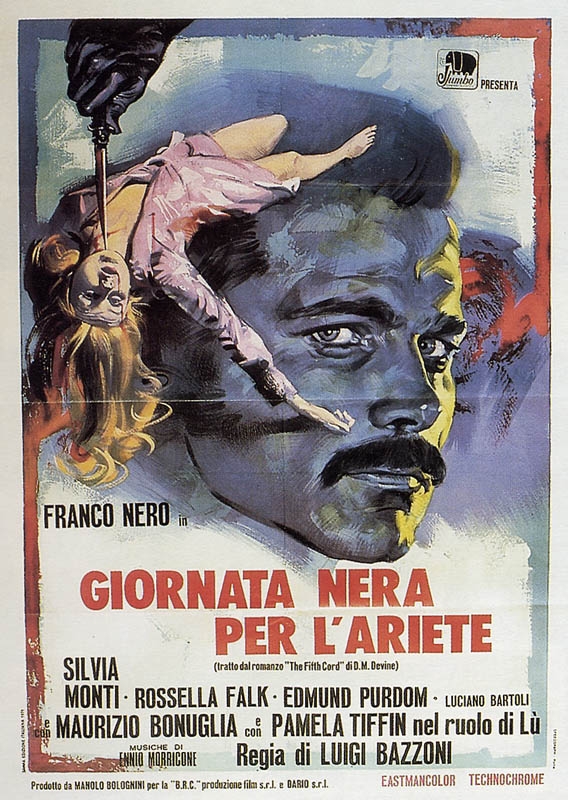Once Franco founded Aetos in 1968 or thereabouts, he seems to have distanced himself from B.R.C.
or perhaps resigned altogether.
Once he left, there were a few movies that seemed to be good, but overall the quality took a



Vivo per la tua morte (A Long Ride from Hell), 1968

The region 2 PAL DVD in Italian only.

The region 1 NTSC DVD in English only.
Okay, now to counter the countless claims
that researching movies is a piece of cake, kindergarten stuff, requiring no intellectual agility whatsoever,
that movie researchers are wasting time on pointless nonsense,
while important people do more difficult and useful things like sales and marketing and

As far as I know, this next movie, The Woman, was never made:


The Variety journalist was confused. Yes, Manolo Bolognini and Franco Rossellini had partnered on Teorema, but for Aetos, not B.R.C. Note also what the above article does not state. Manolo and Mauro Bolognini are mentioned as the movers and shakers of the upcoming B.R.C. productions. Franco Rossellini is mentioned only in the past tense. There is no mention at all of Sergio Corbucci, the “C” of B.R.C., who had resigned two years earlier. The text seems to imply that Franco Rossellini still had some involvement in B.R.C., especially given that it was once again B.R.C. rather than B.B.C., but he did not have any active involvement. At most he probably participated only in the annual meetings of the board of directors, and maybe earned small royalties on the subsequent B.R.C productions. See how confusing this research gets? And don’t expect the tenured professors who write learned tomes on cinema history to know the first thing about any of this. There is no custodian of this knowledge of studios and production houses and the business side and financial side and investment side of cinema, and nobody apart from me seems to care.
The IMDb didn’t tag Bubù as a B.R.C. coproduction, but we can see that it was!

Region 2 PAL DVD,
Italian with optional Italian captions.

Cinque figli di cane (Bootleggers), 1969
Also known as América rugiente.


This one doesn’t seem to be available on video anywhere,
though apparently there was a video floating around (recorded off of television?),
as we can see from
the web page devoted to this movie.

Il pistolero dell’Ave Maria (Forgotten Pistolero), 1969

Region 2 PAL DVD in Italian only.

Region 1 NTSC DVD in English only.

Ciakmull — L’uomo della vendetta (The Unholy Four), 1970

The region 1 NTSC DVD in English only.

Giornata nera per l’ariete (The Fifth Cord), 1971

Region 1 NTSC DVD in English only.
Region 2 PAL DVD in Italian only.

Mio caro assassino (My Dear Killer), 1972

Region 2 PAL DVD in Italian only.

Region 1 NTSC DVD in English only.

Coartada en disco rojo;
Italian title: I due volti della paura (The Two Faces of Fear), 1972

DVD, presumably region 2 PAL, in Spanish only.
This next one, Afyon oppio, was at one time on B.R.C.’s plate,
but another studio took it over:



As we can see from the poster this evolved into a coproduction between PAC in Rome and Lyre in Paris.


Ricco (The Cauldron of Death), 1973

Region 1 NTSC DVD, presumably in English.






Carambola, 1974
Note that this is a coproduction of B.R.C. with Aetos.
How many learned film scholars with PhD’s who write detailed analyses of the deeper symbolic meanings of auteurist films
would care that this is a coproduction between between B.R.C. and Aetos?
But this is vitally important to know.
Manolo Bolognini was a

Get it while supplies last, if you can afford it.
Region 2 PAL DVD, presumably the German dub.


El clan de los inmorales (Order to Kill), 1975

Region 2 PAL DVD, presumably in Spanish only.
As far as I can tell, B.R.C. Produzione was dissolved upon completion of this movie.


